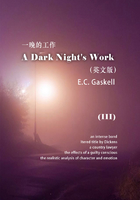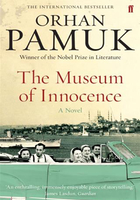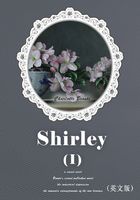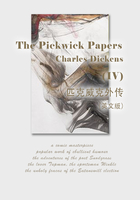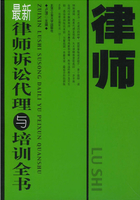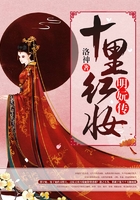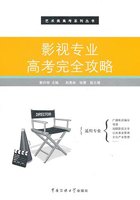A day or two later Mrs. Strickland sent me round a note asking if I could go and see her that evening after dinner. I found her alone. Her black dress, simple to austerity, suggested her bereaved condition, and I was innocently astonished that notwithstanding a real emotion she was able to dress the part she had to play according to her notions of seemliness.
"You said that if I wanted you to do anything you wouldn't mind doing it," she remarked.
"It was quite true."
"Will you go over to Paris and see Charlie?" "I?"
I was taken aback. I reflected that I had only seen him once. I did not know what she wanted me to do.
"Fred is set on going." Fred was Colonel MacAndrew. "But I'm sure he's not the man to go. He'll only make things worse. I don't know who else to ask."
Her voice trembled a little, and I felt a brute even to hesitate.
"But I've not spoken ten words to your husband. He doesn't know me. He'll probably just tell me to go to the devil."
"That wouldn't hurt you," said Mrs. Strickland, smiling. "What is it exactly you want me to do?"
She did not answer directly.
"I think it's rather an advantage that he doesn't know you. You see, he never really liked Fred; he thought him a fool; he didn't understand soldiers. Fred would fly into a passion, and there'd be a quarrel, and things would be worse instead of better. If you said you came on my behalf, he couldn't refuse to listen to you."
"I haven't known you very long," I answered. "I don't see how anyone can be expected to tackle a case like this unless he knows all the details. I don't want to pry into what doesn't concern me. Why don't you go and see him yourself?"
"You forget he isn't alone."
I held my tongue. I saw myself calling on Charles Strickland and sending in my card; I saw him come into the room, holding it between finger and thumb:
"To what do I owe this honour?"
"I've come to see you about your wife."
"Really. When you are a little older you will doubtless learn the advantage of minding your own business. If you will be so good as to turn your head slightly to the left, you will see the door. I wish you good-afternoon."
I foresaw that it would be difficult to make my exit with dignity, and I wished to goodness that I had not returned to London till Mrs. Strickland had composed her difficulties. I stole a glance at her. She was immersed in thought. Presently she looked up at me, sighed deeply, and smiled.
"It was all so unexpected," she said. "We'd been married seventeen years. I sever dreamed that Charlie was the sort of man to get infatuated with anyone. We always got on very well together. Of course, I had a great many interests that he didn't share."
"Have you found out who" -- I did not quite know how to express myself -- "who the person, who it is he's gone away with?"
"No. No one seems to have an idea. It's so strange. Generally when a man falls in love with someone people see them about together, lunching or something, and her friends always come and tell the wife. I had no warning -- nothing. His letter came like a thunderbolt. I thought he was perfectly happy."
She began to cry, poor thing, and I felt very sorry for her. But in a little while she grew calmer.
"It's no good making a fool of myself," she said, drying her eyes. "The only thing is to decide what is the best thing to do."
She went on, talking somewhat at random, now of the recent past, then of their first meeting and their marriage; but presently I began to form a fairly coherent picture of their lives; and it seemed to me that my surmises had not been incorrect. Mrs. Strickland was the daughter of an Indian civilian, who on his retirement had settled in the depths of the country, but it was his habit every August to take his family to Eastbourne for change of air; and it was here, when she was twenty, that she met Charles Strickland. He was twenty-three. They played together, walked on the front together, listened together to the nigger minstrels; and she had made up her mind to accept him a week before he proposed to her. They lived in London, first in Hampstead, and then, as he grew more prosperous, in town. Two children were born to them.
"He always seemed very fond of them. Even if he was tired of me, I wonder that he had the heart to leave them. It's all so incredible. Even now I can hardly believe it's true."
At last she showed me the letter he had written. I was curious to see it, but had not ventured to ask for it.
"MY DEAR AMY,
"I think you will find everything all right in the flat. I have given Anne your instructions, and dinner will be ready for you and the children when you come. I shall not be there to meet you. I have made up my mind to live apart from you, and I am going to Paris in the morning. I shall post this letter on my arrival. I shall not come back. My decision is irrevocable.
"Yours always,
"CHARLES STRICKLAND."
"Not a word of explanation or regret. Don't you think it's inhuman?"
"It's a very strange letter under the circumstances," I replied.
"There's only one explanation, and that is that he's not himself. I don't know who this woman is who's got hold of him, but she's made him into another man. It's evidently been going on a long time."
"What makes you think that?"
"Fred found that out. My husband said he went to the club three or four nights a week to play bridge. Fred knows one of the members, and said something about Charles being a great bridge-player. The man was surprised. He said he'd never even seen Charles in the card-room. It's quite clear now that when I thought Charles was at his club he was with her."
I was silent for a moment. Then I thought of the children.
"It must have been difficult to explain to Robert," I said.
"Oh, I never said a word to either of them. You see, we only came up to town the day before they had to go back to school. I had the presence of mind to say that their father had been called away on business."
It could not have been very easy to be bright and careless with that sudden secret in her heart, nor to give her attention to all the things that needed doing to get her children comfortably packed off. Mrs. Strickland's voice broke again.
"And what is to happen to them, poor darlings? How are we going to live?"
She struggled for self-control, and I saw her hands clench and unclench spasmodically. It was dreadfully painful.
"Of course I'll go over to Paris if you think I can do any good, but you must tell me exactly what you want me to do."
"I want him to come back."
"I understood from Colonel MacAndrew that you'd made up your mind to divorce him."
"I'll never divorce him," she answered with a sudden violence. "Tell him that from me. He'll never be able to marry that woman. I'm as obstinate as he is, and I'll never divorce him. I have to think of my children."
I think she added this to explain her attitude to me, but I thought it was due to a very natural jealousy rather than to maternal solicitude.
"Are you in love with him still?"
"I don't know. I want him to come back. If he'll do that we'll let bygones be bygones. After all, we've been married for seventeen years. I'm a broadminded woman. I wouldn't have minded what he did as long as I knew nothing about it. He must know that his infatuation won't last. If he'll come back now everything can be smoothed over, and no one will know anything about it."
It chilled me a little that Mrs. Strickland should be concerned with gossip, for I did not know then how great a part is played in women's life by the opinion of others. It throws a shadow of insincerity over their most deeply felt emotions.
It was known where Strickland was staying. His partner, in a violent letter, sent to his bank, had taunted him with hiding his whereabouts: and Strickland, in a cynical and humourous reply, had told his partner exactly where to find him. He was apparently living in an Hotel.
"I've never heard of it," said Mrs. Strickland. "But Fred knows it well. He says it's very expensive."
She flushed darkly. I imagined that she saw her husband installed in a luxurious suite of rooms, dining at one smart restaurant after another, and she pictured his days spent at race-meetings and his evenings at the play.
"It can't go on at his age," she said. "After all, he's forty. I could understand it in a young man, but I think it's horrible in a man of his years, with children who are nearly grown up. His health will never stand it."
Anger struggled in her breast with misery.
"Tell him that our home cries out for him. Everything is just the same, and yet everything is different. I can't live without him. I'd sooner kill myself. Talk to him about the past, and all we've gone through together. What am I to say to the children when they ask for him? His room is exactly as it was when he left it. It's waiting for him. We're all waiting for him."
Now she told me exactly what I should say. She gave me elaborate answers to every possible observation of his.
"You will do everything you can for me?" she said pitifully. "Tell him what a state I'm in."
I saw that she wished me to appeal to his sympathies by every means in my power. She was weeping freely. I was extraordinarily touched. I felt indignant at Strickland's cold cruelty, and I promised to do all I could to bring him back. I agreed to go over on the next day but one, and to stay in Paris till I had achieved something. Then, as it was growing late and we were both exhausted by so much emotion, I left her.

